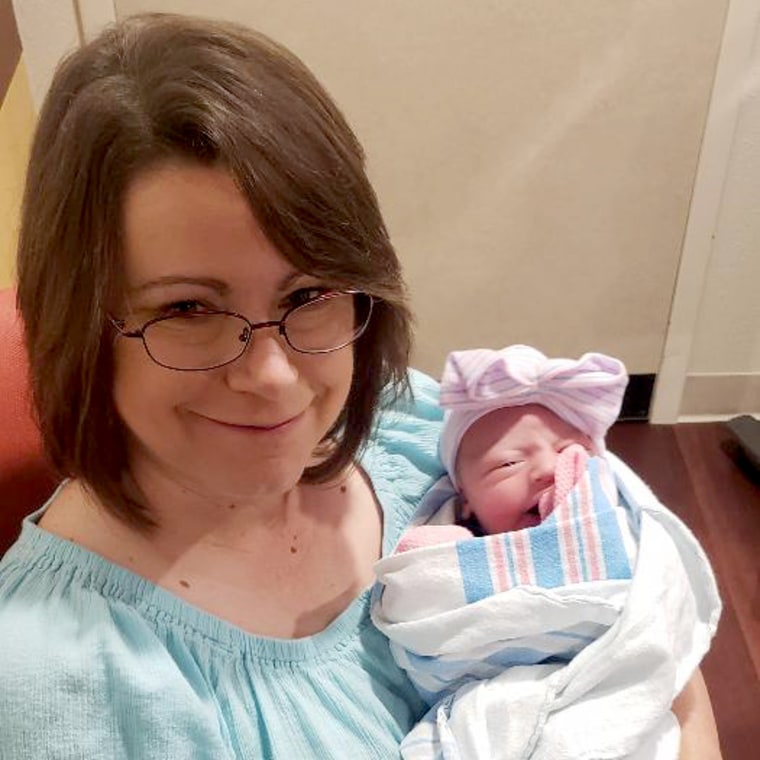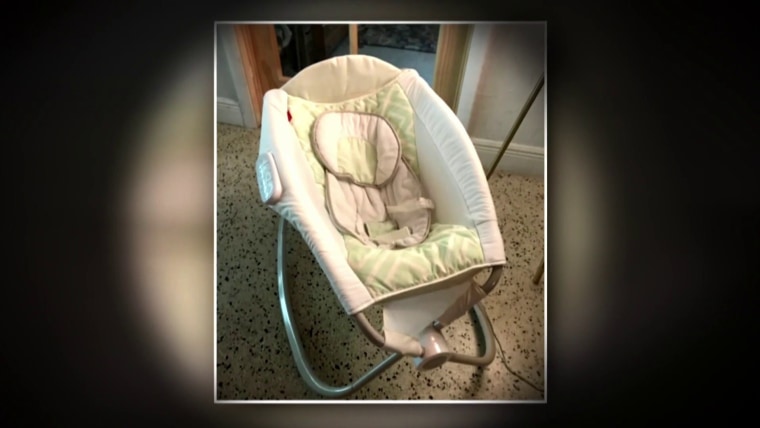The U.S. agency that oversees consumer products decided Wednesday to advance the first federal safety regulations for infant rockers, which are linked to the deaths of nearly a dozen babies.
The Consumer Product Safety Commission voted unanimously to move forward with the proposal developed by its staff, which was unveiled last month. The recommendations come after the agency tallied 11 deaths that were associated with the reclined seats from 2011 to 2022, most of which happened after infants fell asleep in them.
CPSC staff found that the popular products were also associated with 88 injuries in that 12-year period. In many of the cases, infants hurt their heads after rockers tipped over.
The newly proposed rules aim to reduce the risk of suffocation, strangulation and tip-overs in rockers. They would require rockers to be firmer and flatter to prevent infants from suffocating, and to pass stability and other safety tests. Rockers would also need prominent warning labels urging caregivers not to allow babies to sleep in them, and not to put soft bedding around babies in the products.
“I believe that this rule can have a real impact on the safety of these products,” CPSC Chair Alex Hoehn-Saric said at Wednesday morning’s vote.
The regulations must go through public comment and review before they are finalized.
Infant rocker manufacturers Fisher-Price, Kids2 and Béaba did not immediately respond to requests for comment. In a letter last year to Congress obtained by NBC News, Fisher-Price defended its rockers, saying they were safe when parents monitored their babies and properly restrained them.
4moms, another manufacturer, said in a statement that it supports the creation of a federal safety standard and “looks forward to reviewing and providing feedback on the proposed rule.” The company makes an infant rocker that was recalled last year because of a potential strangulation hazard, but says no incidents have been linked to the product.
Rockers are designed to calm babies by swaying them back and forth, either by hand or automatically. Some vibrate or have other soothing features.
Before the vote, CPSC Commissioner Richard Trumka Jr. proposed amending the plan to restrict rockers from being used by infants younger than 6 months and to prohibit “the inclusion of soothing features such as vibrations or calming sounds” that could encourage babies to fall asleep.
While the proposal “tries to make rockers safer for sleeping babies, it does not take steps to dissuade sleep in rockers in the first place,” he said.
Trumka’s amendment was rejected by the three other commissioners, who said that the process of formally amending the proposal would delay the safety rules. Instead, the CPSC voted to ask the public to comment on the safety concerns that Trumka flagged.
Cathy Greninger, whose 4-month-old granddaughter Savannah Savage died in a Fisher-Price Infant-to-Toddler Rocker in 2019, said after the CPSC’s meeting that she was glad to see the agency finally take action.
“This is a long time coming to get these safety standards in place,” she said. “I think it should have been done years and years ago.”

Savannah died at home in Amarillo, Texas, after sleeping in the rocker overnight, which the family did not know was against the manufacturer’s instructions, Greninger said. A 2017 version of Fisher-Price’s instruction manual said the rocker was “not intended for unsupervised or prolonged periods of sleep.”
According to a local justice of the peace, a forensic pathologist ruled that Savannah died of probable positional asphyxia, which can happen when babies are slouched forward or arched backward, cutting off their airflow.
While Greninger was hopeful that the proposed rules would save babies, she said she was disappointed that the commissioners voted against including a ban on vibrating features.
“They need to be banned from having the soothers on them so that the babies don’t fall asleep as easily in them,” she said. “Because, you know, that’s what they do. They fall asleep.”
Fisher-Price did not respond to requests for comment on Savannah’s death.
The CPSC and Fisher-Price issued a joint warning in June 2022 saying that 13 babies had died in the company’s Infant-to-Toddler and Newborn-to-Toddler rockers from 2009 to 2021. The CPSC also issued a warning that same month with another manufacturer, Kids2, saying that one baby had died in that company’s Bright Starts rocker. Both statements cautioned against using rockers, swings and other inclined seats for sleep.
In its letter to Congress last year, Fisher-Price said that in at least 11 of the 13 incidents, infants were left unattended, and that in at least six cases, the babies were not properly restrained in the rockers.
Rockers are distinct from inclined sleepers like the Fisher-Price Rock ’n Play, which was recalled in 2019 and has been reportedly linked to about 100 deaths.
But both products place babies on an inclined surface, which research shows could put them at higher risk of suffocation, Trumka said at Wednesday’s meeting. The public will be asked to comment on whether rockers should be more level, to make them safer if babies fall asleep, or more upright to help keep babies awake.
